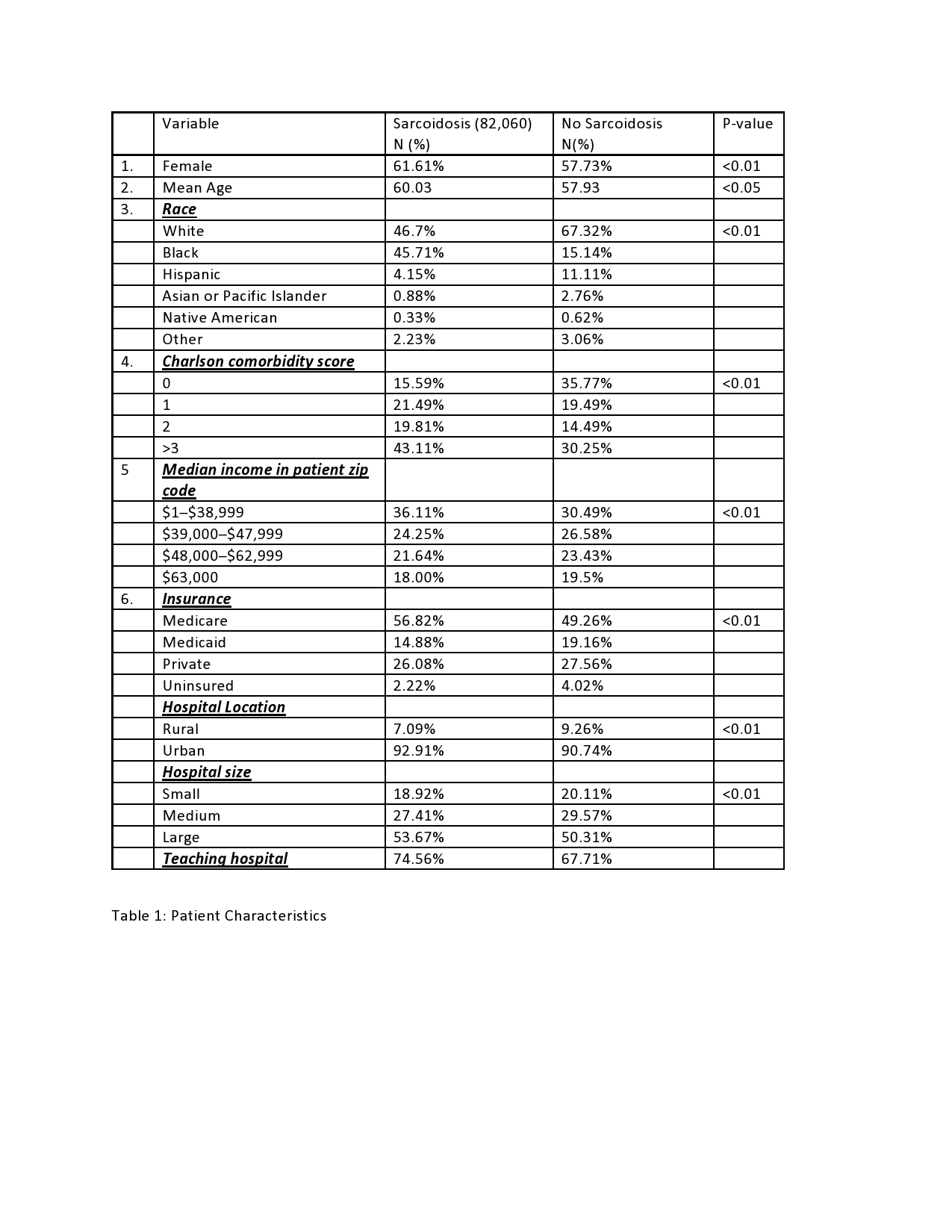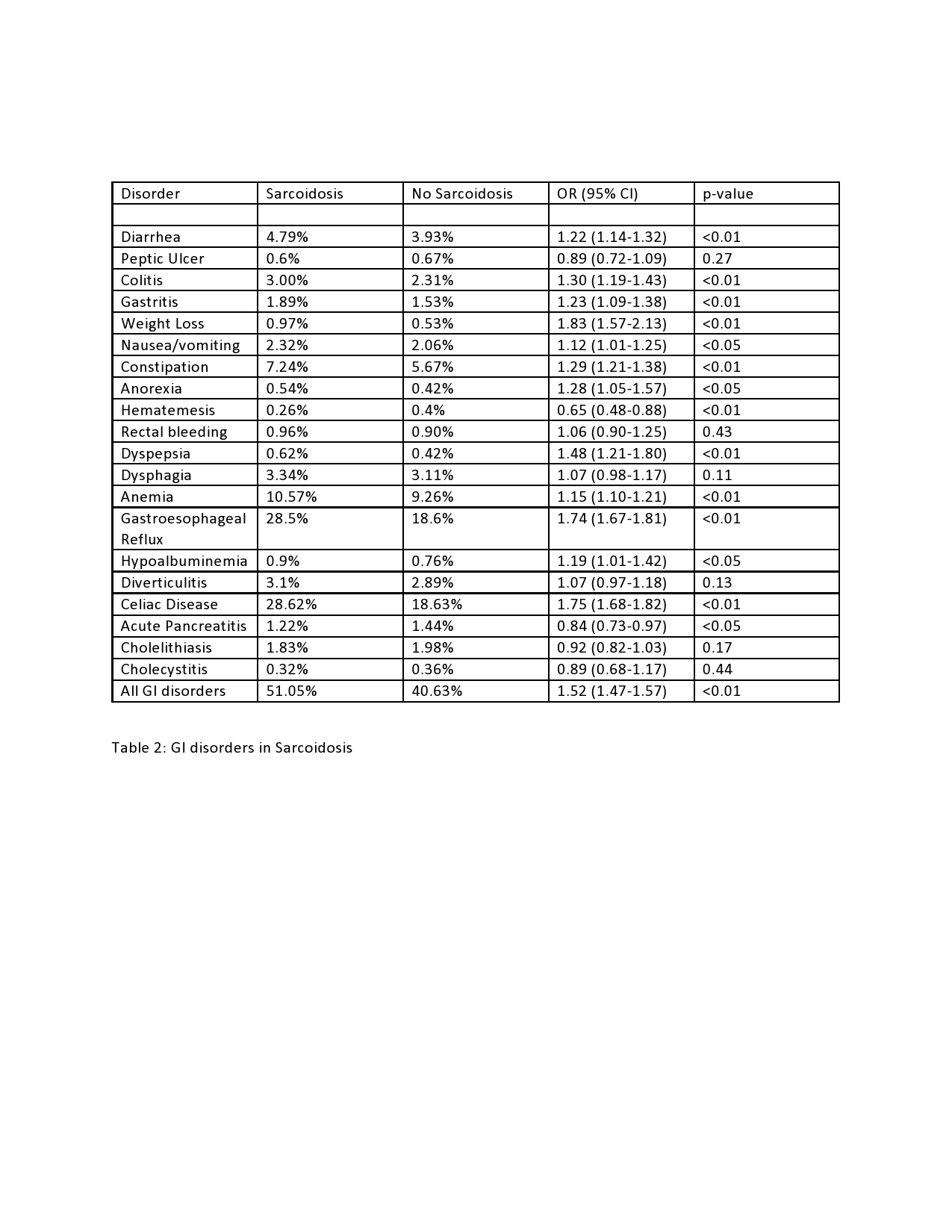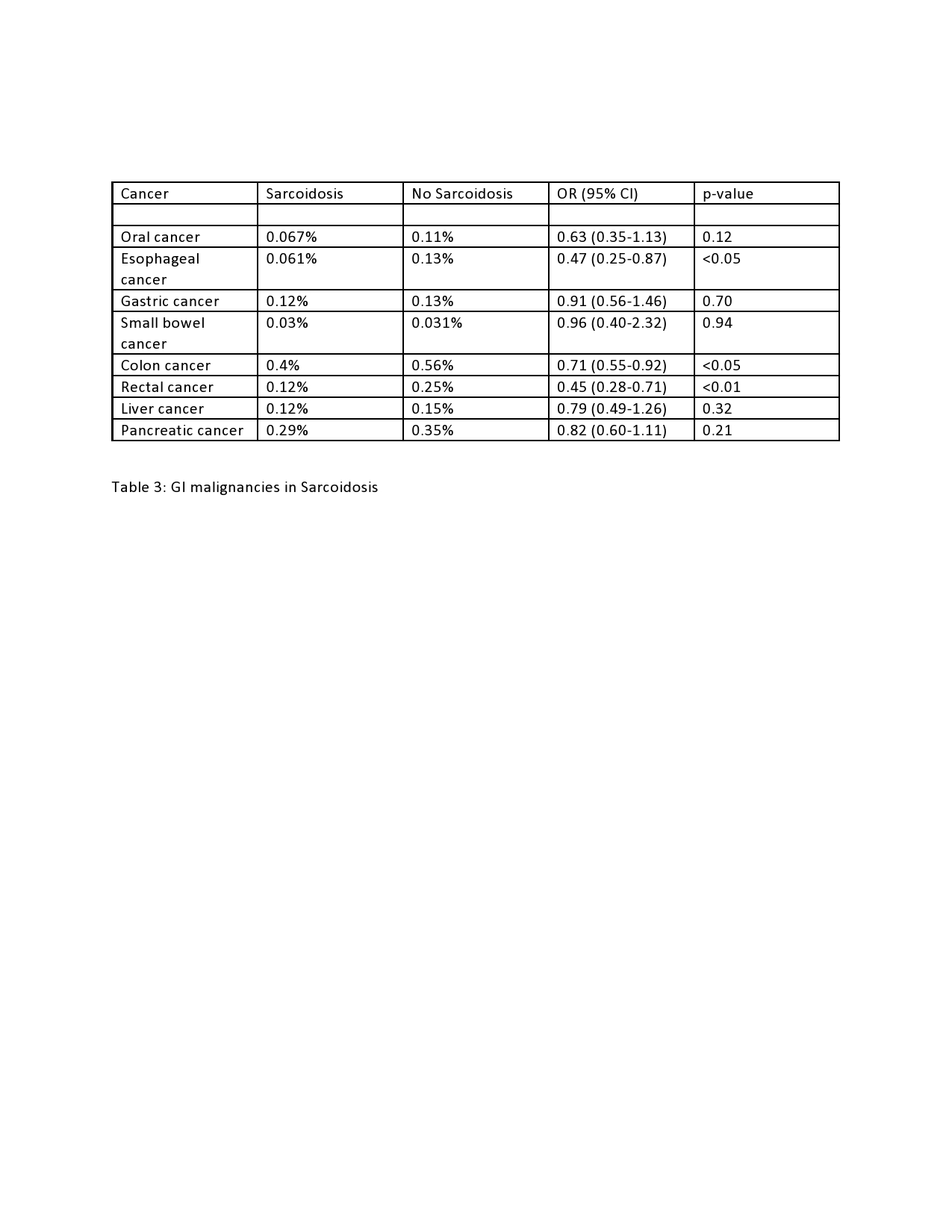Session Information
Date: Monday, November 8, 2021
Session Type: Poster Session C
Session Time: 8:30AM-10:30AM
Background/Purpose: Sarcoidosis is a multisystem disorder that can involve any organ system. It can involve organs like the lungs, skin, eyes, nose, muscles, heart, liver, spleen, bowel, kidney, testes, nerves, lymph nodes, joints, and brain. There has also been some evidence of sarcoidosis causing lymphoma. The prevalence of gastrointestinal (GI) disorders and malignancies have been rarely studied in patients with sarcoidosis. We attempted to answer this retrospectively using the Nationwide Inpatient Sample (NIS) database analysis.
Methods: We queried the 2017 NIS database using ICD-10-CM diagnosis codes to identify all adult patients admitted with a diagnosis of sarcoidosis. We also identified various gastrointestinal disorders and malignancies using ICD-10 codes. Outcomes assessed were association between sarcoidosis and (A) GI disorders and (B) GI malignancies. A multivariate logistic regression was done adjusting the age, gender, comorbidities, insurance status, race and various hospital characteristrics, and comparative analysis was performed between patients with and without sarcoidosis, Odds Ratio (OR) with 95% confidence interval (CI) and p-values were obtained. A p-value of < 0.05 was considered statistically significant for all outcomes. Statistical analysis was performed using STATA software (StataCorp, College Station, Texas).
Results: The 2017 NIS database yielded a total 30.4 million patients, of which 82,060 (mean age 60.03 years and females 61.6%) were identified with a diagnosis of sarcoidosis and the remaining were grouped as non-sarcoidosis. The following GI signs and symptoms were significantly increased in patients with sarcoidosis compared to patients without sarcoidosis: diarrhea (4.79% vs 3.93%, p < 0.01), colitis (3.0% vs 2.3%, p < 0.01), gastritis (1.9% vs 1.5%, < 0.05), weight loss (1.0% vs 0.5%, p < 0.01), dyspepsia (0.6% vs 0.4%, p < 0.01), gastroesophageal reflux (28.5% vs 18.6%, p < 0.01), diverticulitis (3.1% vs 2.9%, p < 0.01), and celiac disease (28.6% vs 18.6%, p < 0.01). A somewhat lower prevalence of the following malignancies were noted in patients with sarcoidosis: esophageal cancer (0.06% vs 0.13%, p < 0.05), colon cancer (0.4% vs 0.6%, p < 0.01), rectal cancer (0.1% vs 0.3%, p < 0.01), and pancreatic cancer (0.3% vs 0.4%, p < 0.01)
Conclusion: We highlighted a spectrum of GI signs and symptoms which were significantly more prevalent in patients with sarcoidosis. Of these, the most prevalent were gastroesophageal reflux and celiac disease. Interestingly, GI malignancies were significantly less prevalent in patients with sarcoidosis than those without. These results should be evaluated and confirmed in future studies.
 Table 1: Patient Characteristics
Table 1: Patient Characteristics
 Table 2: GI disorders in Sarcoidosis
Table 2: GI disorders in Sarcoidosis
 Table 3: GI malignancies in Sarcoidosis
Table 3: GI malignancies in Sarcoidosis
To cite this abstract in AMA style:
Fatima R, Acharya A, Iftikhar S, Gekonde J. Gastrointestinal Malignancies in Sarcoidosis: A Nationwide Analysis [abstract]. Arthritis Rheumatol. 2021; 73 (suppl 9). https://acrabstracts.org/abstract/gastrointestinal-malignancies-in-sarcoidosis-a-nationwide-analysis/. Accessed .« Back to ACR Convergence 2021
ACR Meeting Abstracts - https://acrabstracts.org/abstract/gastrointestinal-malignancies-in-sarcoidosis-a-nationwide-analysis/
